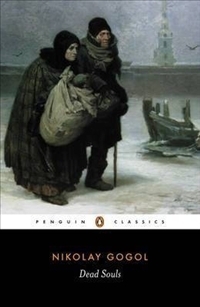TL;DR
Dead Souls is a satirical novel by Nikolai Gogol featuring Chichikov, a conman who buys the names of deceased serfs to reinvent himself as a gentleman, exploring themes of social hypocrisy and the absurdities of Russian society.
What is Dead Souls about
In 'Dead Souls', Chichikov arrives in a provincial Russian town with a bizarre scheme: he plans to purchase the names of dead serfs from various landowners, thereby freeing them from the burden of paying taxes on these non-existent individuals. This audacious proposal serves as his means to accumulate wealth and status, using the 'souls' as collateral for a loan to establish himself as a gentleman. Gogol crafts a rich tapestry of characters, showcasing a grotesque portrayal of society, encapsulated in figures like the foolish Manilov and the avaricious Sobakevich. The novel, first published in 1842, stands as a pioneering work of Russian literature, renowned for its sharp wit and incisive social critique.
Dead Souls 6 Key Takeaways
Chichikov's Arrival
The novel opens with Chichikov arriving in a provincial town, where he quickly becomes a figure of intrigue and suspicion among the local landowners.
The Bizarre Proposal
Chichikov introduces his scheme to buy the names of deceased serfs, a proposition that shocks and fascinates the landowners as he navigates their various personalities.
The Landowners' Reactions
Each landowner presents a unique response to Chichikov's offer, exposing their own moral failings and societal attitudes while adding to the novel's satirical tone.
Chichikov's True Intentions
Gradually, it becomes clear that Chichikov's motivations extend beyond mere financial gain; he aims to craft a new identity and elevate his social standing.
The Absurdity of Serfdom
Through the absurdity of Chichikov's dealings, Gogol critiques the institution of serfdom, portraying serfs as mere commodities devoid of agency.
Chichikov's Downfall
The narrative builds towards a climax where Chichikov's schemes unravel, revealing the inherent flaws in his character and the society that enables such corruption.
Top Dead Souls Quotes
- In the end, it is not the dead souls themselves that matter, but the living who exploit them.
- Life is a dream, and the dream is a sorrowful one.
- The truth is always painful, but it is the only path to awakening.
Who should read Dead Souls?
This book is ideal for readers interested in classic literature, Russian culture, and social satire. It offers insights into 19th-century Russian society and the complexities of human nature, appealing to those who appreciate rich character development and critical social commentary.
Dead Souls Best Reviews
- Gogol's 'Dead Souls' is a brilliant blend of comedy and tragedy, showcasing a unique portrayal of societal flaws and the grotesque aspects of human nature, making it a timeless classic. - The New Yorker
- Robert A. Maguire's translation breathes new life into Gogol's masterwork, offering readers a vivid and engaging exploration of 19th-century Russian society. - The Times Literary Supplement
People also liked these summaries
Dead Souls FAQs
What is the main theme of Dead Souls?
The main theme of 'Dead Souls' is a satirical examination of the social and moral decay within Russian society, particularly focusing on the absurdity of serfdom and the superficial nature of social status.
Why is Chichikov's scheme significant?
Chichikov's scheme to buy dead souls highlights the exploitation inherent in serfdom, presenting a critique of a society that values wealth and status over genuine human connection and morality.
